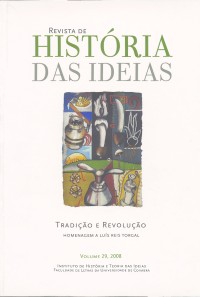Please use this identifier to cite or link to this item:
https://hdl.handle.net/10316.2/41582| Title: | Le Guerre Mondiali e la storia D'Italia: memorie pubbliche, memorie divise, memorie contese | Other Titles: | As guerras mundiais e a história de Itália: memórias públicas, memórias partilhadas, memórias contestadas The World Wars and the history of Italy: public memories, shared memories, contested memories |
Authors: | Bernardi, Alberto De | Issue Date: | 2008 | Publisher: | Imprensa da Universidade de Coimbra | Abstract: | O ensaio percorre as modalidades com que a Itália, potência média semiperiférica,
enfrentou e participou nas duas guerras mundiais do século XX.
Em ambos os casos, a Itália entra no conflito com atraso e estes atrasos devem-se
atribuir simplesmente aos atrasos na preparação militar que também existiam e que influenciaram de modo considerável o desenrolar do conflito. Nal Grande
Guerra, o contraste entre neutralistas e intervencionistas defíne a partir das bases
os alinhamentos políticos e transforma o sistema político, pondo em evidência a
crise da liderança liberal, mas também a incapacidade do Partido Socialista em
assumir o papel de força política nacional. Na Segunda Guerra Mundial o atraso
marcava as fracturas do grupo dirigente fascista e preconizava o desvinculamento
entre o regime e as massas, que acabaría por se verificar abertamente apenas três
anos depois. Por outro lado, em ambos os casos, é incerta a colocação da Itália
entre os vencedores e os vencidos. Em 1918, a vitória militar não é usufruída
pelas elites liberais e o mito da 'Vitoria mutilada", isto é, de urna derrota italiana,
torna-se urna das linhas de força da propaganda fascista. Na Segunda Guerra
Mundial, a Itália perde a "guerra fascista", mas vence a "guerra antifascista":
a Itália, simultaneamente um país vencido, mas também um país vencedor,
não conseguiu saldar plenamente as contas corn a derrota e esta ambiguidade
teria marcado a memoria colectiva e impedido a construção de uma identidade
nacional sólida. This paper examines the circumstances in which Italy, a semi-peripheral power, faced and participated in the two world wars of the 20th century. In both cases, Italy entered late into the conflict, and this fact was simply due to delays in the military preparation, which considerably influenced the development of the conflict. In World War I, the contrast between the neutralists and the interventionists defined the political alignments and transformed the political system, highlighting the crisis of the liberal leadership and also the incapacity of the Socialist Party in assuming the role of national political force. In World War II, the delay marked the fractures of the ruling Fascist group and anticipated the disassociation between the regime and the masses that would become a fact only three years later. On the other hand, in both cases, it was not possible to place Italy amongst the winners or the losers. In 1918, the military victory was not enjoyed by the liberal elites, and the myth of the "mutilated victory", i.e., of an Italian defeat, became one of the driving forces of the Fascist propaganda. In World War II, Italy lost the "Fascist war" but won the "anti-Fascist war": Italy, simultaneously a beaten country and a winning country, failed to fully settle accounts with the defeat and this ambiguity marked the collective memory and prevented the construction of a solid national identity. |
URI: | https://hdl.handle.net/10316.2/41582 | ISSN: | 0870-0958 2183-8925 (digital) |
DOI: | 10.14195/2183-8925_29_23 | Rights: | open access |
| Appears in Collections: | Revista de História das Ideias |
Files in This Item:
| File | Description | Size | Format | |
|---|---|---|---|---|
| le_guerre_mondiali_e_la_storia_d_italia.pdf | 8.78 MB | Adobe PDF |  |
Items in DSpace are protected by copyright, with all rights reserved, unless otherwise indicated.
